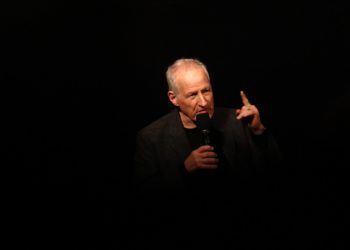OK, I’ll say it. I’m sick of superheroes. I blame the Marvel Cinematic Universe (36 movies and counting over 17 years) and the DC Extended Universe (43 movies and counting, mostly since the late 1970s). Maybe Earth’s not big enough for two universes. They’re running pretty thin these days, down to rebooting reboots, making sequels for prequels and squeezing every ounce from the intellectual property tube to fill out streaming platform minutes.
But there’s always Superman. The Krypton-born alien, orphaned, sent off into space for survival and then raised by adoptive parents in Kansas. He’s now been with American pop culture for 10 decades (eight in film). Despite an outfit modeled after a circus strongman, he’s become a durable, transcendent symbol of the ultimate immigrant and somehow a simultaneous embodiment of “Truth, Justice, and the American Way.”
Superman’s the classic American good guy, and so this weekend’s opening of the new “Superman” with David Corenswet is a great time to think about the real good guys and gals in American life — that is, if you can find any. Where are all the good guys and gals in America? What qualifies someone for the title these days?
The idea has definitely shifted. It’s as if by sheer screen volume the fake superheroes overwhelmed the public consciousness. Superheroes are dialed up so high we can’t hear what real heroes sound like anymore. A 2008 poll in Britain found almost a quarter thought Winston Churchill was fake, while a majority of Britons believed Sherlock Holmes was real.
We’ve become confused: We prefer to watch fake heroes on screen rather than expect real ones to emerge in life. And so the fake ones become the only kind of hero we recognize.
The historian Daniel Boorstin described this transition from heroism to fame in his 1961 book “The Image.” He noted that heroes in American history were typically known for great public contribution through immense difficulty and danger. It didn’t matter much what they looked like because their deeds had saved lives and mattered to so many.
But pictures and movies changed everything in the 20th century. Heroes became celebrities. We traded away enduring contributions to the public good in exchange for flimsy, flashy fame that works for a paycheck. Value over values; money over all.
This isn’t hard to see. Look at how college sports has been conquered by contracts and name-image-likeness deals. How law firms kowtowed to an administration making unprecedented demands. How media heavyweights keep bending knees to the same. And let’s not get started with social media “influencers” except to say that doing the right and honest thing has been swept aside by the twin tsunamis of popularity and the Almighty Buck.
Where’s our real truth, our real justice, our real American way?
Not in Congress. The “Big Beautiful Bill” is a perfect example. It might take a Mt. Rushmore makeover to honor the profound contributions to cowardice in the votes surrounding this act. Rep. Jeff Crank (R-Colo.) couldn’t vote fast enough to add trillions to the national debt despite arguing, less than a year ago, that Congress is “turning a blind eye to this $35 trillion in debt,” that it’s “unsustainable” and that “we have to get our fiscal house in order, and we have to do this for our children and our grandchildren.”
Or Rep. Chip Roy (R-Texas), long-time fiscal hawk on the debt, who repeatedly railed against the Big Beautiful Bill’s deficit spending in the final stretch. And then he voted for it.
Or Sen. Josh Hawley (R-Mo.), known for saying “we must ignore calls to cut Medicaid” because “slashing health insurance for the working poor” would be “both morally and politically suicidal.” That was in May. But come July, Hawley voted to cut Medicaid.
The final vote came down to Sen. Lisa Murkowski (R-Alaska). In a mid-June town hall, she said, “I have made clear very early on that we cannot move forward with a bill that makes cuts to Medicaid.” And yet, despite the fact that nearly 40,000 Alaskans (more than 5% of the state’s population) will likely lose their healthcare coverage as a direct result of the bill, Murkowski caved.
Sarah Longwell, founder and publisher of the Bulwark, spared nothing in her criticism of Murkowski. She wrote that this one action “defines our pathetic political moment,” embodying:
“Selfishness: I’m taking care of me and mine, the rest of you can pound sand;
Lack of accountability: I know the bill is bad, hopefully someone else will fix it;
Cowardice: I’m scared of Trump and his voters and need to go-along to get along with my GOP colleagues;
Moral rot: I know the difference between right and wrong, and actively chose wrong.”
Not exactly Superman. Sounds more like Lex Luthor at his most self-serving and callous.
We don’t need someone faster than a speeding bullet in the House. We don’t need senators leaping tall buildings in a single bound. We don’t need Superman.
But we do need our Clark Kents and Lois Lanes to step up. We do need our real heroes right now. Maybe Crank or Roy or Hawley or Murkowski will see the movie this weekend. Maybe they’ll find some courage for the next vote.
Maybe.
ML Cavanaugh is the author of the forthcoming book “Best Scar Wins: How You Can Be More Than You Were Before.” @MLCavanaugh
The post Contributor: We desperately need a dose of ‘Truth, Justice, and the American Way’ appeared first on Los Angeles Times.




